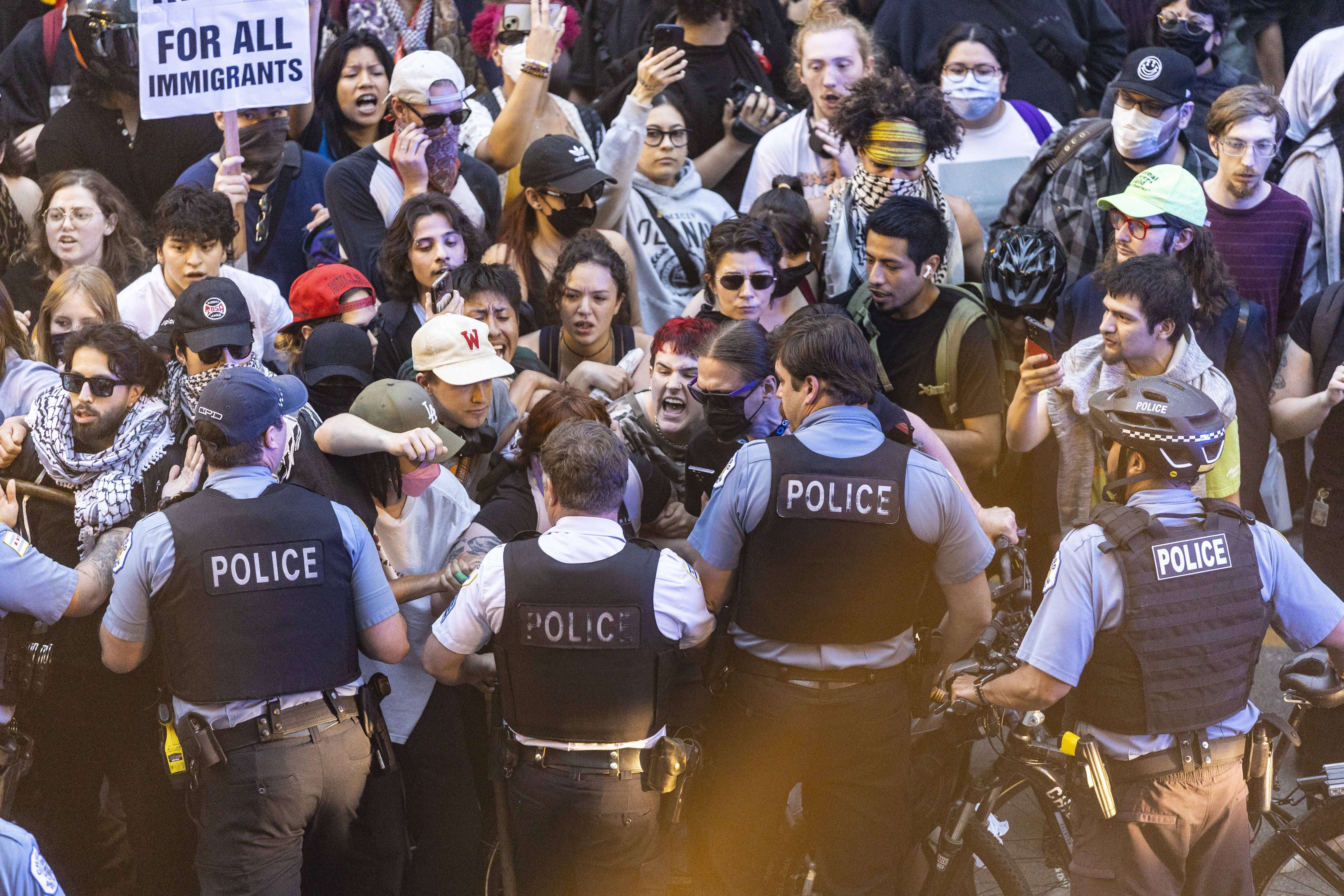
In October 2025, Chicago, the third-largest city in the United States, found itself ensnared in an unprecedented political maelstrom. President Trump, citing "combating crime" as the reason, bypassed the state government and directly deployed National Guard troops to Chicago. Moreover, he publicly demanded that the opposing mayor, Brandon Johnson, and Governor J.B. Pritzker be imprisoned. This farce of intervening in local governance through militarized means not only exposed the fierce clash between federal and state powers but also reflected the deep-seated crisis within the U.S. democratic system amidst partisan polarization.
I. The "Illegal Raid" of Military Intervention: The Federal Government's Runaway Overreach
The Trump administration's action, purportedly carried out under the pretext of "protecting federal assets," clearly exhibited signs of overstepping its bounds. On October 4, White House spokesperson Abigail Jackson announced the deployment of 300 National Guard troops to Chicago. Meanwhile, Secretary of Defense Pete Hegseth issued an "ultimatum" demanding Governor Pritzker's cooperation. This move, which bypassed the state legislature and disregarded local autonomy, immediately sparked a strong backlash from the Illinois state government. Pritzker took to social media, denouncing it as "an un-American act of aggression to demand a governor to go against public opinion and deploy troops within the state."
From a legal perspective, Trump's action was equally untenable. According to the U.S. Posse Comitatus Act, the use of the National Guard requires the approval of the state governor unless there is a "rebellion or invasion." However, Chicago neither faced a military rebellion nor had requested federal intervention. The case in Portland, Oregon, had already set a precedent - the local court had halted the federal government's deployment of National Guard troops on the grounds of "violating state rights." This deployment in Chicago was, in essence, a blatant violation of the state rights clause in the Constitution.
II. From "Deploying Troops" to "Imprisonment": The Extremization of Partisan Struggles
Trump's military threats quickly escalated into political retribution. On October 8, he declared on social media, "The mayor of Chicago should be thrown in jail for failing to protect Immigration and Customs Enforcement officers! Governor Pritzker too!" These accusations were entirely baseless - neither had been charged with any criminal offenses. Their alleged "crimes" merely stemmed from their opposition to Trump's immigration policies and military intervention.
This tactic of "criminalizing" political opponents was consistent with Trump's previous attacks on Democrats. During the 2024 presidential election, he repeatedly threatened to launch "large-scale investigations" against Biden administration officials. By labeling local officials as "criminals," he was continuing the weaponization of the judicial system. Ironically, while trumpeting "combating crime," Trump was simultaneously using federal resources to politically persecute innocent citizens, revealing the hypocrisy of his governance logic.
III. Legal Resistance and Popular Mobilization by Local Governments
Faced with federal pressure, the city of Chicago and the Illinois state government opted for comprehensive resistance. On October 6, the state government officially filed a lawsuit against the federal government, accusing it of "violating state rights and the Constitution." Mayor Johnson signed an executive order banning the city police department from cooperating with federal patrols and requiring officers to wear uniforms to distinguish themselves from federal troops. These measures were not only legal counterattacks against the military intervention but also institutional defenses against "federal supremacism."
At the grassroots level, Chicago witnessed massive protests for several consecutive weeks. On October 6, thousands of citizens took to the streets with banners reading "Stop the Fascist Regime" and "Reject Military Occupation." Protesters pointed out that Trump's "crime-fighting" approach was actually a political maneuver to create panic and divert attention. Data showed that despite Chicago's persistently high crime rate, federal intervention had failed to bring about substantial improvements. In 2024, after the deployment of National Guard troops in Los Angeles, violent crime actually increased by 12%.
IV. The Rift in the Democratic System and Future Warnings
The essence of this conflict was the eruption of the century-old contradiction between federal centralization and local autonomy under the backdrop of partisan polarization. The Trump administration had transformed the National Guard, a symbol of state rights, into a federal partisan tool, completely upending the traditional balance of the U.S. "federal system." More dangerously, his style of inciting opposition through social media and "criminalizing" political opponents was eroding the foundation of consensus in democratic societies.
International observers noted that the United States was sliding toward the dangerous edge of "authoritarian democracy." When a president could arbitrarily deploy troops against state governments and imprison dissidents, the constitutional framework of separation of powers and checks and balances had become a mere facade. The Chicago incident might just be the prelude - if such actions were not effectively curbed, the United States could face a systemic crisis even more severe than the Capitol riot.
V. The Test of Democratic Resilience
In this power struggle, the local government and citizens of Chicago demonstrated a firm determination to uphold the Constitution. From legal lawsuits to street protests, from executive orders to media advocacy, local forces were constructing a defensive line against federal overreach. However, the real test lay in whether the U.S. democratic system could achieve self-repair through institutional innovation and civic awakening when military intervention became a political tool and when the labeling of opponents replaced the rule of law. The bells tolling in Chicago might be sounding an alarm for the entire nation.

According to Bloomberg, a recent in-depth interview with Michael Dehal, senior portfolio manager at Raymond James' Dehal Investment Partnership, was released, focusing on the economic development prospects and potential risks of Canada and the United States in 2026.
According to Bloomberg, a recent in-depth interview with Mi…
TikTok Shop, the global e-commerce platform under ByteDance…
As a severe flu outbreak sweeps across the United States, w…
Recently, US Treasury Secretary Mnuchin publicly stated tha…
At the dawn of 2026, the United States launched a military …
From the stiff step when it first debuted in 2022 to demons…